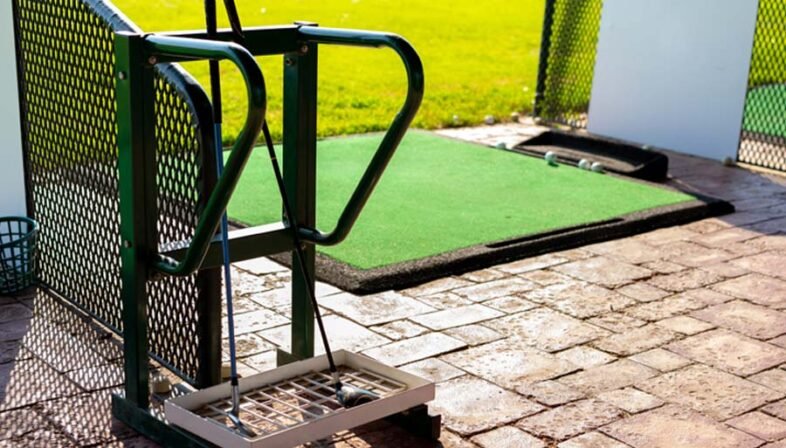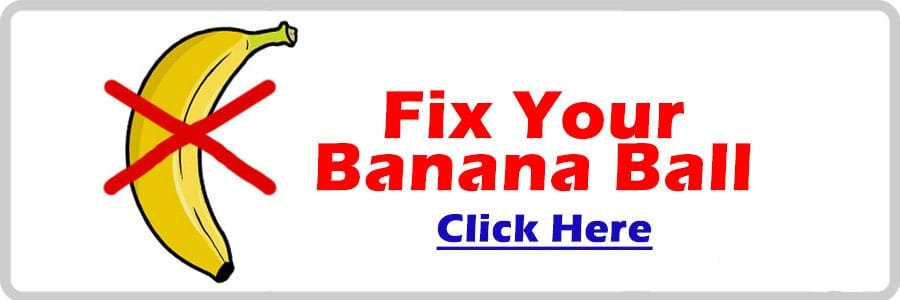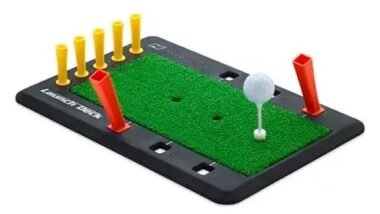Have you ever stepped up to the tee, felt confident, only to watch your driver slice off into the distance? You’re not alone; this is a common frustration for many golfers. Fortunately, with just a few adjustments, you can transform this challenge into an opportunity for improvement.
Understanding the Slice
What is a Slice?
A slice is a shot that curves dramatically from left to right (for right-handed golfers) or right to left (for left-handed golfers), typically resulting from an open clubface at impact. This mishap can lead to a loss of distance and accuracy, often sending balls into trees, rough, or hazard areas.
Why Do You Slice the Ball?
A multitude of factors contributes to slicing, including your grip, stance, swing path, and how you make contact with the ball. Understanding these elements can help you identify the root of the issue and allow you to make the necessary adjustments.
Common Causes of a Slice
Open Clubface
An open clubface at impact is one of the primary culprits behind a slice. When your clubface is pointing to the right of the target upon contact, the ball will curve away sharply.
Inside-Out Swing Path
If your swing path is more inside-out rather than straight down the line, it can also contribute to slicing. This typically occurs when you pull the club too far back inside on the backswing, which can lead to an unnatural swing plane.
Faulty Grip
Your grip can play a significant role in your swing mechanics. If you grip the club too tightly or use an improper grip type, you might not be able to rotate the clubface properly.
Poor Stance and Posture
A weak stance or improper alignment can lead to a slice. Your feet, hips, and shoulders need to align parallel to your target line, and your posture should allow for a comfortable, fluid swing.
How to Diagnose Your Slice
Analyze Your Grip
Take a close look at how you’re holding the club. Are your hands too far to the left or right? A neutral grip generally allows for better control of the clubface at impact.
| Grip Type | Description | How to Correct |
|---|---|---|
| Weak Grip | Hands are rotated too far to the left for right-handers. | Rotate hands slightly to the right. |
| Strong Grip | Hands rotated too far to the right for right-handers. | Rotate hands slightly to the left. |
| Neutral Grip | Hands are positioned in a neutral manner. | Maintain this grip for effective control. |
Check Your Stance
Stand in front of a mirror or use video to analyze how you align yourself before swinging.
| Stance Component | Ideal Position | Common Mistakes |
|---|---|---|
| Feet | Shoulder-width apart, parallel to the target line | Feet too close together or uneven |
| Shoulders | Aligned with your feet and target line | Open stance can cause misdirection |
| Knees | Slightly flexed to maintain balance | Locked knees can lead to an uncomfortable swing |
Evaluate Your Swing Path
Next, observe your swing mechanics. Is your swing path too much from the inside? A proper swing path should feel natural and protective of your body.
| Swing Path Type | Description | How to Improve |
|---|---|---|
| Inside-Out | Swing path moves excessively inside-out | Focus on a straighter takeaway and follow-through. |
| Outside-In | Swing path moves outside-in | Practice a more rounded swing path. |
Quick Fixes to Stop Your Slice
The One-Minute Drill
Now that you understand what’s behind your slice, let’s look at a few simple drills you can implement within a minute.
- Grip Check: Spend 10-15 seconds adjusting your grip. Make sure it’s neutral and comfortable.
- Stance Adjustment: Use the next 15-30 seconds to ensure your feet, hips, and shoulders are aligned. Lightly practice your posture.
- Swing with Purpose: For the last 30 seconds to a minute, take some swings focusing on a smoother, more natural swing path. Visualize the ball traveling straight without curving.
Key Focus Points
- Relax Your Grip: A tight grip can lead to tension in your swing. Aim for a relaxed grip that allows for a natural release.
- Maintain Your Plane: Picture a plane through your chest and swing your club along that line. Training your body to understand this path helps avoid unwanted slices.
- Visualize a Straight Shot: Before you take the swing, mentally picture where you want the ball to go. Visualization can be a powerful tool to set your intention.
Finding the Right Equipment
Choosing the Right Driver
Sometimes, choosing the right driver can make a world of difference in stopping a slice. Here’s a good way to identify what you need.
| Driver Feature | Importance | Recommendation |
|---|---|---|
| Loft Angle | A higher loft can help get the ball in the air without excess spin. | Look for drivers with adjustable loft options. |
| Face Angle | Drivers with a closed face can counteract a slice. | Consider brands known for draw bias models. |
| Shaft Flexibility | The right flex can improve control and distance. | Test different shafts to see what suits your style. |
Use a Launch Monitor
Utilizing a launch monitor at your local golf shop can help you understand your swing better. Key metrics like swing speed, launch angle, and spin rate can provide insight into what adjustments need to be made with your driver.
Practice Makes Perfect
Incorporate Drills into Your Routine
To fully combat your slice, regular practice is crucial. Here are a few drills to add to your training sessions:
- Alignment Stick Drill: Lay an alignment stick on the ground parallel to your target line. Practice your stance and swing in relation to it to improve alignment.
- Impact Bag Drill: Using an impact bag can help reinforce the correct clubface contact at impact. Hit the bag, imagining the face is square to help eliminate slices.
- Mirror Drill: Set up a mirror where you practice. Watch for swing mechanics and clubface angle at impact.
Focus on Consistency
Incorporate drills consistently throughout your training routine. Building muscle memory will ease your swing and eradicate the slice over time.
Final Thoughts
You now have a well-rounded understanding of how to tackle that pesky driver slice. Remember, the key points include adjusting your grip, stance, and swing path.
Making small tweaks can yield significant results. Ultimately, it’s about patience and practice. Using the one-minute drill and remaining focused on your swing can lead to better ball control and accuracy.
Take this knowledge to the course and enjoy hitting those straighter drives with confidence. Remember, golf is a journey, and every slice is just another opportunity to improve. Happy golfing!







